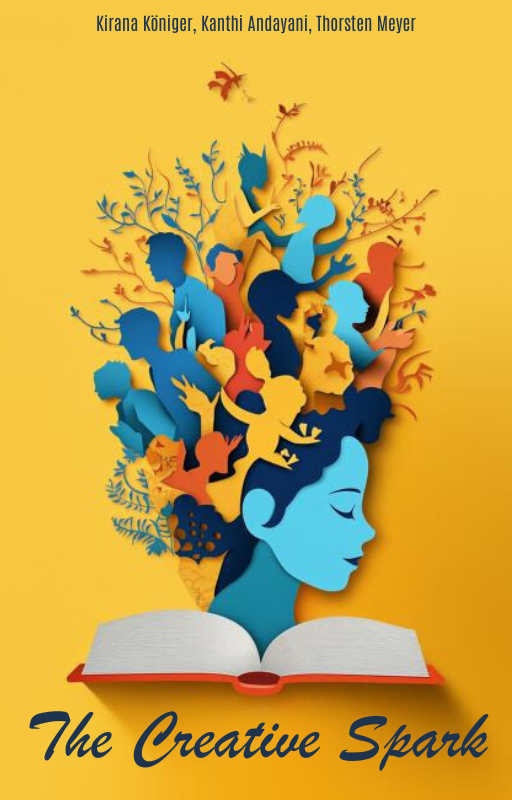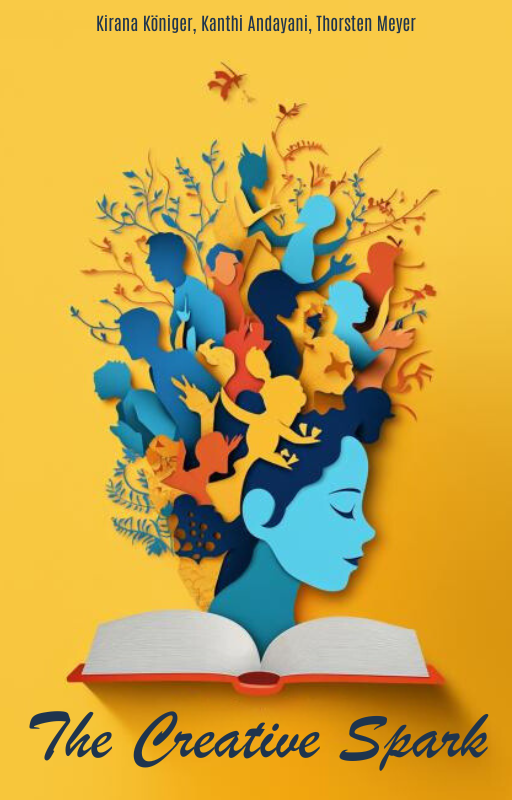Personal Growth
Unlocking Your True Self: The Journey of Self-Discovery and Personal Growth

Understanding yourself can be likened to solving a jigsaw puzzle – challenging yet fulfilling. Each of us possesses distinct strengths and weaknesses, but it requires introspection to uncover them. Embracing life as it comes is the first step towards unraveling your inner workings and leveraging your talents efficiently.
Self-discovery starts by taking an honest look at your past experiences and successes. It’s important to reflect on the moments that made you feel proud or inspired, as well as those that created feelings of disappointment or regret. You can uncover patterns in your behavior, language and emotions which will help shape the way you interact with others going forward. Knowing who we are helps us become more confident in making decisions based on what is right for us rather than trying to fit someone else’s expectations or mold.
Finally, learning to embrace both your abilities and shortcomings gives us insight into ourselves as individuals. Valuing our talents while also recognizing areas where improvement may be necessary allows us to create goals that motivate personal growth without feeling overwhelmed by unrealistic demands from society. By allowing these two sides of ourselves equal footing, we can start the process of becoming our true selves through acceptance and love for who we uniquely are!
Valuing Yourself And Your Experiences
When it comes to accepting life on life’s terms, valuing yourself and your experiences is a key step. Self-worth, self-esteem, and self-respect are all essential components of this process. In order to truly accept life as it is, you must recognize the value that you bring to the table. This means taking an honest look at who you are and what you have accomplished so far in life. It’s important to understand that no matter how difficult things might be, there are still valuable lessons to be learned from every experience.
The next step is learning how best to use these experiences for personal growth and development. By setting achievable goals and striving towards them each day, you can begin building your own self-value through your accomplishments. Staying mindful of your progress will also help boost your sense of worthiness by reminding yourself of all the great things you have achieved despite any setbacks or challenges along the way. Additionally, having a positive support system in place—whether it be friends or family members—can provide further assurance that you are capable of achieving anything if you set your mind to it.
Ultimately, understanding and recognizing the value within yourself teaches us that we should never underestimate our potential for greatness no matter what obstacles come our way. Through developing self-awareness we can learn more about ourselves than ever before – ultimately leading us down a path toward greater acceptance of life on life’s terms.
Developing Self-Awareness
Studies show that the average person spends approximately 70% of their life on autopilot, not really aware or conscious of what they are doing and how it affects them. Developing self-awareness is the key to understanding oneself better and making meaningful changes in our lives. With mindful awareness, we can begin to recognize our own thoughts, feelings, motivations, and habits – both positive and negative – allowing us to gain deeper insights into ourselves.
Self-reflection helps us become more aware of who we are at a core level as well as where we need improvement. By taking time for yourself each day to observe your actions and reactions in different situations, you will become more familiar with your triggers and how they influence your behaviour. This gives you an opportunity to assess things objectively instead of reacting impulsively out of habit or fear.
Through developing this type of awareness, we have a greater degree of control over our responses to life’s challenges by being able to pause before responding and observing any patterns which may be creating roadblocks in achieving desired goals. Becoming aware also improves communication skills because it allows us to understand the perspectives of others while still honouring our own values and needs despite differences in opinion. As a result, relationships will grow stronger when boundaries are effectively established through mutual respect and acceptance. Transition: Once we learn how to develop self-awareness, then managing stress and difficult feelings becomes much easier.
Managing Stress And Difficult Feelings
Learning to accept life on life’s terms can teach you a lot about yourself, including how to manage stress and difficult feelings. It is important to have coping strategies in place so that when times get tough, we can regulate our emotions in healthy ways. Here are the top 3 skills for managing stress and difficult feelings:
- Developing self-regulation skills – Learning how to become aware of your emotional states and finding positive outlets for those emotions will help you stay grounded during stressful periods. This could include meditation or mindfulness practices, journaling, exercise, or connecting with supportive friends.
- Cultivating a positive mindset – In order to combat negative thoughts and beliefs, it is essential to cultivate a more optimistic outlook on life’s challenges. By shifting from pessimism to positivity, you’ll be able to better handle tough situations by seeing them as opportunities for growth rather than obstacles blocking progress.
- Practicing relaxation techniques – Taking time out of your day for self-care activities such as deep breathing exercises or yoga can also help manage stress levels while providing space for reflection and introspection. Doing something calming each day helps create balance between work demands and personal needs which reduces overall stress levels over time.
By learning these three core skills related to managing stress and difficult feelings, you can gain deeper insight into who you are as an individual and develop healthier responses when faced with adversity. As a result, this increased understanding of oneself can lead one down the path towards improved problem-solving abilities both now and in the future.
Improving Problem-Solving Skills
Like a ship sailing through rough waters, we can learn to navigate our lives with improved problem-solving skills. Developing effective strategies for tackling any challenge is essential in order to accept life on life’s terms. With an open mindset and the right approach, it’s possible to enhance your ability to solve problems and make better decisions that serve you best.
First of all, let go of perfectionism when working towards improving problem-solving skills. Focus on strategy development rather than trying to achieve perfect outcomes every time. Strategize by asking yourself questions such as “What do I need to think about?” or “What are my options?” This will help you develop a plan of action while allowing room for flexibility. Additionally, practice strategic thinking by considering various angles and exploring different perspectives before taking decisional steps forward.
Furthermore, find creative solutions outside the box instead of settling for conventional ones. Don’t be afraid to experiment and test out ideas without worrying too much about failure; this will help broaden your problem solving strategies so that you can discover new pathways for navigating challenging situations successfully. By incorporating these approaches into your daily routine, you’ll soon learn how to improve problem-solving abilities which in turn will lead to greater self-acceptance and personal growth.
With our newfound understanding of ourselves, we are now ready to cultivate resilience – the key ingredient necessary for accepting life on life’s terms!
Cultivating Resilience
Cultivating resilience is an essential part of learning to accept life on life’s terms. Resilience helps us persevere through difficult times and stay focused on our goals despite inevitable setbacks. Building resilience starts with understanding the benefits that come from being able to handle stressful situations without becoming overwhelmed or burned out. This includes developing mental, emotional, and physical resilience strategies that help you endure challenging circumstances while maintaining a healthy mindset.
When it comes to cultivating resilience, one effective strategy is engaging in positive self-talk – reminding yourself of your strengths and abilities whenever negative thoughts enter your mind. Another helpful tactic for building emotional strength is practicing mindfulness activities such as deep breathing exercises or meditation which can help combat stress by creating a sense of inner calmness and clarity. Additionally, regular exercise boosts endorphins and promotes overall wellbeing, both mentally and physically.
The key takeaway here is that we all must take steps to become more resilient if we want to effectively cope with life’s adversities. By taking the time to practice these habits each day, not only will we be better equipped to face tough challenges but also feel more capable of achieving our goals when they arise. Such practices can ultimately lead us closer towards unlocking our full potential and discovering more about ourselves along the way. With this knowledge firmly under our belt, we can move forward onto becoming more flexible in thinking.
Becoming More Flexible In Thinking
As we continue on our journey of cultivating resilience, it’s time to take a look at becoming more flexible in our thinking. Think of yourself as a rubber band; the more you stretch and bend it, the stronger it becomes. When life throws curve balls your way, being open-minded and adaptable can help you stay resilient by allowing you to move with changes instead of against them.
By remaining open-minded and embracing flexibility in thought, you learn how to go with the flow no matter what comes up. You become comfortable with change and uncertainty rather than resisting them. Your mind starts to find creative solutions for any problem that arises because when faced with an obstacle, you view it not as something unchangeable but as an opportunity for growth. This shift in mindset can lead to greater emotional stability since hard times don’t seem so daunting anymore when seen from this new perspective.
When we are able to remain open-minded while facing adversity or unexpected situations, our mental strength grows exponentially. We start seeing opportunities where before there was only fear or stagnation, which leads us closer towards achieving our goals without getting discouraged by roadblocks along the way. Being flexible in thought also helps us gain deeper insight into ourselves, unlocking potentials we never knew existed within us – all while helping others reach their own personal objectives too!
With this newfound understanding of flexibility and its many benefits, let’s turn now to accepting life’s uncertainties as part of living authentically…
Accepting Life’S Uncertainties
Learning to accept life on its terms is all about accepting uncertainty. Uncertainty can be very challenging, but it’s important to understand that no one has control over everything in their lives and it’s ok to not know what will happen next. Self-acceptance comes from learning how to ride the waves of change instead of trying to resist them. When we embrace uncertainty, we open ourselves up for growth and new experiences.
Life lessons come when we acknowledge our own limitations and trust that things will work out as they should. Unexpected changes often require us to pivot and find a different path than planned. This can be difficult at first, but with self-awareness and patience, you learn how to adjust your course without sacrificing your goals or values.
When you take time to observe yourself during times of uncertainty, you gain insight into how you respond in various situations. You become more mindful of your thoughts and feelings while also being able to recognize patterns in your behavior which can help inform strategies for success moving forward. Learning to live with purpose means being open-minded enough to accept the unknown and trusting that whatever happens is part of your journey towards personal development. With this mindset, you are free from fear and ready for anything life throws your way!
Learning To Live With Purpose
When you learn to accept life on life’s terms, you open the door to discovering your purpose and living with intention. Learning how to live with purpose will help you lead a fulfilling and meaningful life. You can start by asking yourself questions such as: What gives my life meaning? What values do I prioritize? How can I use what I know and have been through for the benefit of others?
To get started, it helps to understand that there are many paths available in finding your true purpose in life. Here’s an overview of some tools at your disposal when looking to discover yours:
| Clarify Your Values | Define Goals & Priorities |
| Identify Strengths & Weaknesses | Reflect On Experiences & Knowledge |
| Practice Self-Compassion & Forgiveness | Take Action Aligned With Purposeful Living |
When learning to live with purpose, take time to reflect on these areas and ask questions about them. Pay attention to how things make you feel or come up for you emotionally; this could be indicative of where your passions lie or which direction would serve you best. It is also important not to forget the importance of taking action—the more effort put into aligning one’s actions with their newfound understanding of self, the greater chances of success! Finally, don’t forget that practicing self-compassion and forgiveness along the way will provide even further clarity when seeking out one’s personal goals and ambitions.
Practicing Self-Compassion And Forgiveness
When faced with life’s difficulties, it can be easy to feel overwhelmed and discouraged. But learning to practice self-compassion and forgiveness is essential for understanding ourselves better and growing from our experiences. Developing an attitude of kindness towards oneself has many advantages that ultimately enhance our lives:
- We can accept mistakes and learn from them instead of being unnecessarily hard on ourselves
- We can become more aware of our feelings and needs so we can take care of ourselves
- We can create a healthier relationship with ourselves which will lead to stronger relationships with others
- We can cultivate inner peace by responding to difficult emotions in a compassionate way
In order to foster this kind of internal environment, we must first understand the concept of loving-kindness. It means wishing yourself – or another person – happiness, health, harmony, joy, safety, security and freedom from suffering. In other words, it’s about actively cultivating positive thoughts directed at yourself or someone else. This includes making sure you don’t respond negatively to your own perceived shortcomings or make negative assumptions when things go wrong. Instead, focus on recognizing your strengths and celebrating any successes along the way – no matter how small they may seem!
Self-forgiveness is also key when trying to navigate through life’s challenges without feeling as though we’re not good enough. Learning to forgive ourselves gives us permission to move past moments where we’ve made mistakes or failed in some capacity; allowing us to start anew each day with fresh energy rather than dwelling on what went wrong yesterday. Ultimately, developing these skills opens up space for healing within ourselves while providing an opportunity for deeper self-discovery. By embracing self-compassion and forgiveness into our daily lives, we are able open up new channels for growth that help us identify values that guide us into meaningful living.
Identifying Values That Guide You
When you learn to accept life on life’s terms, one of the most important things you can do is identify your values. Values are those guiding principles that influence how we think and act in our lives. They help guide us in making decisions about what matters most to us. When it comes to accepting life on its own terms, knowing our values will help shape the way we approach challenging situations and difficult moments.
The first step in identifying your values is to look within yourself and ask “What kind of person do I want to be?” This may sound like a simple question but it goes much deeper than that. It involves asking questions such as: What kind of relationships do I value? How do I make sure my actions align with my beliefs? What causes am I passionate about? Answering these questions helps define who you are and serves as the foundation for developing your personal set of core values.
Once you have identified some key areas or aspects that matter to you, start by listing out all the potential values associated with each area. Once this list is created, narrow down your selection until only three-five stand out above all else – these become your core values which should provide guidance when faced with tough choices or circumstances beyond your control.
Having an understanding of what truly matters most to you gives clarity during times when everyday decision-making becomes overwhelming or confusing. A clear sense of purpose makes it easier to stay centered while life continues around you at a rapid pace – allowing you to connect more meaningfully with others without getting lost along the way.
Connecting With Others Meaningfully
When you learn to accept life on its terms, you can find yourself in a place of understanding that connecting with others meaningfully is essential. Imagining the vastness of the world around us and our individual role within it can be awe-inspiring. Even though we may feel small or insignificant at times, there are ways to make meaningful relationships with those around us. Building relationships based on trust and respect gives us an opportunity to express ourselves authentically without fear or judgement. Taking the time to get to know someone beyond surface level conversations allows for deep connections between two people as they explore their shared experiences and values.
Going even further than simply talking about what interests each other, forming emotional bonds is also important when attempting to build strong relationships. Connecting emotionally is key when supporting one another through struggles, obstacles and successes alike. It helps create a sense of community among your peers and brings feelings of safety and security which are so needed for personal growth. Allowing yourself to open up emotionally creates a safe space where both parties can express themselves freely while feeling accepted by the other person in return.
Taking all these steps towards creating meaningful connections does not have to be difficult; all it takes is being mindful of who we are interacting with and taking into account how our actions affect them positively or negatively. Learning how best to approach situations involving interpersonal interactions will help foster genuine connections that bring out the best in everyone involved – allowing us to grow together rather than apart.
Making Peace With The Past
Making peace with the past can be a difficult, but rewarding journey. It requires us to accept our life journey and let go of any pain or regrets that are holding us back from being our true selves. Below is a table of key steps for making peace with the past:
| Steps | Description |
|---|---|
| Acknowledge Your Pain | Be honest about your feelings and take responsibility for them without judgment. Recognize how they have impacted your life up until now. |
| Release Regrets & Let Go | Identify what you regret in order to understand it better and move forward. Learn to forgive yourself and others on this forgiveness journey. |
| Accept Life’s Unfamiliarity | Understand that life will never be perfect; learn to embrace its uncertainty, imperfections and surprises along the way. |
| Trust Yourself & Move Forward | Let go of fear and trust in yourself as you continue to grow, evolve and make decisions based on what feels right for you today. |
The idea behind these steps is to help us recognize the areas in which we may need healing so that we can overcome those obstacles and gain clarity into who we truly are meant to be. We all experience things differently, but if we choose not to hold onto those experiences, then we can find liberation in embracing our future self by learning acceptance. As long as we keep growing, learning, loving ourselves more deeply each day – then no matter what happens next – we will always come out stronger than before!
Taking Responsibility For Your Actions
When you learn to accept life on life’s terms, it is critical that you take responsibility for your own actions and recognize the consequences of those decisions. Taking personal accountability requires us to face our fears, mistakes, and miscalculations in order to move forward towards a better future. Here are 4 key points to remember when taking responsibility:
- Accept the consequences of your decisions – It’s important to understand that there will be both positive and negative outcomes from any action. We must learn from these consequences so we can make better choices in the future.
- Own up to failure – Instead of making excuses or blaming others, strive to take ownership of your failures and use them as learning experiences for growth.
- Acknowledge successes and celebrate wins – Celebrating small accomplishments along with accepting defeats helps build confidence and resilience over time.
- Learn from past mistakes – Reflecting on previous missteps allows us to create more mindful approaches for managing similar situations going forward.
It’s essential that we embrace change as an opportunity rather than a challenge if we want to fully benefit from all life has to offer. By recognizing how our actions shape our reality, we become equipped with the skills necessary for navigating through difficult times while striving towards success.
Embracing Change As An Opportunity
We all experience change in our lives – it is inevitable. But do we embrace this change as an opportunity for growth, or do we fear it? Learning to accept life on life’s terms means learning to view change with a positive perspective and adapting our lives accordingly.
By embracing change, you can open yourself up to new possibilities that may have otherwise been hidden from you before. It takes courage to take on the challenge of changing your mindset but the rewards are worth the effort! When faced with changes, ask yourself how you can use them to create something better for yourself and those around you. This will help shift your focus away from feeling overwhelmed by the situation towards looking for ways to make the most of it.
Change also brings opportunities to learn more about who you are and what you’re capable of achieving. For example, if there is a job loss or other financial strain, look at what skills and talents you already possess that could be used differently or further developed in order to bring in income or find other sources of support. Similarly, relationship difficulties can provide valuable insight into understanding yourself better and identifying areas where improvement might be necessary. By making conscious efforts in these situations, instead of letting them defeat us, we can grow stronger and wiser from them.
No matter how difficult things get, remember that life is always offering us chances to improve ourselves – even through difficulty we can gain strength from within and benefit from taking risks when needed. Life is full of surprises so why not choose to see them as exciting adventures instead?
Frequently Asked Questions
What Are The Best Ways To Develop Self-Awareness?
Are you looking for ways to develop self-awareness and become a better version of yourself? Self-awareness is an essential life skill that can help us gain clarity in our actions and decisions, as well as deepen our understanding of ourselves. Fortunately, there are many reflective practices we can use to increase our self-awareness.
One way to cultivate greater self-awareness is through regular periods of introspection. This could be done by writing down your thoughts or feelings about recent events in your day or week. Taking the time to reflect on your experiences can provide valuable insight into how you think and feel about different aspects of life. Additionally, it can help you identify potential areas for personal growth and development.
Self-reflection is another powerful tool for developing self-awareness. It involves asking yourself questions such as “How am I feeling right now?” or “What do I need from myself in this moment?” Having honest conversations with yourself helps shed light on inner motivations and beliefs that may have been hidden behind busyness or avoidance techniques until then. Making it part of your daily practice allows you to stay connected with who you are at the core beyond external factors like work or relationships.
Developing self-awareness is not only useful but also necessary if we want to live a meaningful and fulfilling life. By consciously engaging in these reflective activities, we can create space for ourselves to pause, listen, understand, accept, forgive and ultimately grow stronger from within – so that when faced with difficult situations we don’t react automatically out of habit but rather respond thoughtfully based on what feels most aligned with our true nature.
How Can I Start Valuing Myself And My Experiences?
Accepting life on life’s terms can be a great opportunity to start valuing yourself and all your experiences. Learning to develop self-awareness is an essential part of this process, but it’s just the beginning. Taking a step further by learning to value yourself will allow you to become more confident in who you are and how you interact with others. This doesn’t mean that you should ignore any mistakes or issues, but rather use them as learning opportunities for personal growth.
Valuing yourself involves having self-love, self-respect, self-worth, and self-confidence; all of which come from within. You must first begin by becoming aware of your thoughts and feelings so that you can reflect upon what matters most to you. Through honest reflection, take time to assess your values and beliefs about yourself in order to better understand why you feel the way you do about certain situations or people.
The key here is to practice being kinder towards yourself when faced with difficult decisions or circumstances. Here are some tips for developing greater self-valuation:
- Make room for positive affirmations: Start each day reminding yourself that no matter what happens today, you are worthy of love and respect.
- Stop comparing yourself unfavorably: Everyone has their own unique gifts and talents – don’t let comparisons get in the way of appreciating yours.
- Celebrate small successes: Acknowledge any progress made throughout your journey – no matter how big or small!
- Prioritize meaningful connections: Surrounding yourself with supportive friends can help build confidence and foster relationships built on trust and mutual understanding.
By investing in ourselves through these practices we create space for genuine connection which leads us closer towards our goals while also increasing our appreciation for life’s moments – both good and bad. Practicing daily gratitude helps us recognize the beauty found in ordinary days while also cultivating deeper meaning out of everyday events we sometimes take for granted. Self-reflection allows us to go beyond surface level understanding into truly recognizing our worth over time.
What Are Some Strategies I Can Use To Manage Stress And Difficult Feelings?
Learning to accept life on its terms can be a challenging journey. It requires us to practice mindful self-care, and as part of that process, we must learn how to manage our stress and difficult feelings. There are several strategies available for developing more effective coping skills, such as emotional regulation techniques, mindfulness meditation, positive self-talk and stress management strategies.
By learning these effective methods for managing our emotions, we can become better equipped to deal with the ups and downs of everyday life in a healthy way. Through consistent practice of these tools, we will have the ability to take control over our thoughts and reactions when faced with stressful situations or overwhelming feelings.
Mindfulness meditation is one particularly powerful tool that allows us to create a sense of clarity by focusing on the present moment without judgement or attachment. Additionally, engaging in positive self-talk helps us develop healthier patterns of thinking while boosting our overall confidence levels. Meanwhile, utilizing cognitive behavioral therapy (CBT) techniques provides an opportunity to challenge negative thoughts, allowing us to reframe them into something more beneficial or productive.
These constructive practices enable us to cultivate resilience within ourselves so that no matter what challenges arise in life – whether big or small – we can face them head-on with courage and strength. By creating space for ourselves through regular relaxation activities like deep breathing exercises and yoga postures as well as implementing proper time management habits like scheduling breaks throughout the day; we set up boundaries which help protect against unnecessary overwhelm and exhaustion from creeping in too often.
How Can I Become More Flexible In My Thinking?
Becoming more flexible in our thinking can be a great way to develop open-mindedness, broaden perspectives and even reframe difficult situations. To become more flexible requires us to change our perspective and look at the world with cognitive flexibility. Here are some strategies we can use to help:
- Take an honest look at your beliefs and how they shape your thoughts. Are there any limiting beliefs that could be holding you back from seeing things differently?
- Step outside of your comfort zone – try out new activities or ideas, visit different places or experiment with different ways of doing something. Doing so will introduce fresh perspectives and allow for greater creativity when approaching challenges.
- Practice self-reflection – take time each day to reflect on what has happened and where opportunities may lie within it. When looking back over past experiences, consider alternate interpretations of events that could provide insights into other possibilities which might have been overlooked previously.
By engaging in these practices regularly, we can begin to move away from fixed points of view and start opening ourselves up to new possibilities and ideas. As we do this, we condition our minds to think more broadly and deeply about topics that come up throughout life’s journey. This not only helps us to appreciate all sides of an argument but also enables us to make decisions based on sound judgement rather than predisposed biases or assumptions.
When faced with challenging circumstances, by applying this new mindset of openness and curiosity, we are better equipped to confront obstacles head on as opposed to running away from them in fear or denial. If approached correctly then those same adversities can be turned into valuable learning opportunities enriching the understanding of who we are as individuals – deepening our relationship with ourselves along the way!
How Can I Make Peace With My Past?
Making peace with our past can be a difficult journey, but it is one worth taking. It starts by letting go of the baggage that has been weighing us down for so long, and forgiving ourselves for any missteps we have made along the way. We must embrace the pain of our past experiences in order to learn from them and heal old traumas. By doing this, we are able to reflect on how far we’ve come and ultimately grow as individuals.
Here are four key steps towards making peace with your past:
- Acknowledge Your Feelings: Recognize all emotions associated with your experience without judgment or criticism.
- Accept What You Can’t Change: Understand which aspects of your story you cannot alter and accept these things exactly as they are.
- Make Amends When Possible: Reach out to those involved in situations where an apology may be appropriate; even if not accepted, expressing remorse can help alleviate inner turmoil and guilt.
- Find Closure: Journaling, meditation, or talking with a therapist can all provide closure while helping process through unresolved issues.
It’s important to focus on self-care throughout this journey; allow yourself space when needed – being gentle and kind during moments of emotional distress will lead to greater healing in the future. Learning how to make peace with our past helps create more stability within ourselves, allowing us to move forward into a brighter tomorrow with newfound gratitude for life’s ever changing seasons.
Conclusion
As you learn to accept life on its terms, it can be a powerful way to gain self-awareness and become more comfortable with yourself. When we make peace with our past, free ourselves from unhealthy patterns of thought, and start valuing the experiences that have made us who we are today – we’re able to see ourselves in a whole new light.
When you take these steps towards increased self-awareness and emotional acceptance, it’s like taking off an old pair of glasses and putting on a brand new set – suddenly everything looks different! You may begin to recognize strengths and weaknesses within yourself that you were never aware of before; your relationships with others will improve as well. With improved understanding comes greater empathy for both yourself and those around you.
Learning to accept life on its own terms is essential if you want to gain true insight into yourself. Start by adopting strategies that help manage stress and difficult emotions; practice being flexible in your thinking; focus on personal growth; get curious about your story; embrace mistakes as part of the journey – all this leads up to developing valuable skills such as resilience, inner strength, and courage that can carry through every aspect of life.
Meet Nadi, the soulful writer and explorer of inner realms who graces OurMindAndBody.com with her profound insights and heartfelt wisdom. With a profound passion for mindfulness, meditation, and spiritual growth, Nadi weaves words that touch the hearts and minds of readers, leaving a lasting impact on their well-being journey.
Rooted in a background of philosophy and psychology, Nadi’s curiosity about the human mind and the mysteries of the soul led her on a transformative path of self-discovery. Drawn to the transformative power of mindfulness and meditation, she embarked on a quest to understand the intricacies of these practices, not only for her own growth but also to inspire others to embark on their own inner journeys.
Personal Growth
Book Review: “The Creative Spark: Unleashing Your Inner Artist”

Rediscovering Creativity in the Digital Age
In a world where digital distractions often overshadow our creative instincts, “The Creative Spark: Unleashing Your Inner Artist” emerges as a timely and empowering guide. Authored by Kirana Königer, Kanthi Andayani, and Thorsten Meyer, this book provides a comprehensive and accessible approach to reigniting the creative flame within each of us.
A Global Tapestry of Creative Wisdom
The authors draw on their diverse backgrounds—Indonesian roots, European influences, and global experiences—to weave a rich tapestry of creative insights. This multicultural perspective is not just a backdrop but the foundation of the book’s philosophy, which sees creativity as a universal language that transcends cultural and geographical boundaries.

Expanding the Boundaries of Creativity
“The Creative Spark” encourages readers to rethink creativity, moving beyond the traditional confines of the arts. The authors argue convincingly that creativity is a fundamental life skill, essential for problem-solving, personal growth, and professional success across all domains.
The Science of Creativity
Anchored in scientific research, the book explores:
- The neurological foundations of creativity
- The roles of different brain regions in creative thinking
- The impact of neuroplasticity on the development of creative skills
- How environment and lifestyle choices affect creative potential
Practical Exercises for Creative Development
Each chapter offers a variety of hands-on exercises designed to nurture creativity across different fields:
- Writing prompts to spark the imagination of aspiring authors
- Visual challenges for artists and designers
- Culinary experiments for food enthusiasts
- Mindfulness practices to enhance creative awareness
- Cross-disciplinary projects that blend multiple forms of artistic expression
Overcoming Creative Challenges
The book provides practical strategies for overcoming common obstacles in the creative process, including:
- Breaking through creative blocks and periods of stagnation
- Overcoming self-doubt and imposter syndrome
- Managing perfectionism and the fear of failure
- Balancing creative pursuits with everyday responsibilities
Creativity in the Digital Era
The authors thoughtfully examine how technology can both enhance and hinder creativity, discussing:
- The potential of digital tools to support creative processes
- Balancing digital and analog approaches to creativity
- Leveraging social media to share and promote creative work
- Addressing ethical considerations in the age of AI-generated art
A Journey of Self-Discovery
Throughout the book, the authors share personal stories from their own creative journeys, adding depth and relatability to the content. Readers are invited to embark on their own journey of self-discovery, guided by reflective questions and exercises designed to help uncover their unique creative strengths.
Critical Analysis
Strengths:
- A broad and inclusive approach that extends beyond traditional artistic boundaries
- A multicultural perspective offering a wealth of global insights
- A strong scientific foundation combined with practical applications
- An accessible tone that makes creativity approachable for all readers
Considerations:
- The broad scope of topics may be overwhelming for some readers
- Certain cultural references may resonate differently depending on the audience
- Some advanced readers may find familiar concepts, though they are presented with fresh insights
Conclusion: A Guide to Creative Renewal
“The Creative Spark: Unleashing Your Inner Artist” is more than just a guide to artistic expression—it’s a blueprint for living a more imaginative and fulfilling life. By redefining creativity as a core human trait, the authors offer a work that has the potential to transform not just how readers approach art, but how they approach life itself.
Rating: 4.85/5 stars
Highly recommended for its inclusive approach, scientific grounding, and transformative potential, “The Creative Spark” stands out as a valuable resource for anyone looking to reignite their creative passions and embrace a more inspired way of living.
Meet Nadi, the soulful writer and explorer of inner realms who graces OurMindAndBody.com with her profound insights and heartfelt wisdom. With a profound passion for mindfulness, meditation, and spiritual growth, Nadi weaves words that touch the hearts and minds of readers, leaving a lasting impact on their well-being journey.
Rooted in a background of philosophy and psychology, Nadi’s curiosity about the human mind and the mysteries of the soul led her on a transformative path of self-discovery. Drawn to the transformative power of mindfulness and meditation, she embarked on a quest to understand the intricacies of these practices, not only for her own growth but also to inspire others to embark on their own inner journeys.
Personal Growth
Clearing Brain Fog: Top Foods For Mental Clarity

Experiencing mental fog is like navigating through a dense forest without a map. It can be frustrating, exhausting, and hinder your ability to think clearly and be productive.
But fear not, because there is a way to clear the fog and regain mental clarity. By incorporating certain foods into your diet, you can nourish your brain and improve cognitive function.
In this article, we will explore the top foods that can help clear brain fog and enhance mental clarity.
Key Takeaways
- Brain fog is a state of mental confusion and exhaustion that hinders productivity and quality of life.
- Unhealthy eating habits cause inflammation and cognitive decline, while nutrient-rich foods repair cells and promote brain function.
- Blueberries, fatty fish, nuts, dark chocolate, leafy greens, turmeric, and green tea are foods that can improve brain health and clarity.
- A balanced diet with brain fog-fighting foods is crucial for mental clarity, and integrating these foods into your diet can help improve cognitive function and memory recall.
Top Brain Fog-Fighting Foods
I love incorporating these brain fog-fighting foods into my diet to improve my mental clarity and overall brain health.
Blueberries are a fantastic choice as they are rich in antioxidants, which prevent oxidative stress and inflammation in the brain. They also enhance memory function, making them a great addition to my daily routine.
Fatty fish, like salmon and sardines, are another favorite of mine. They contain omega-3 fatty acids that improve brain health, strengthen memory, and enhance cognitive function.
Nuts are a convenient and tasty option as they contain healthy fats, protein, and fiber, all of which contribute to improved cognitive functioning.
Dark chocolate, in moderation, is a delicious way to protect against oxidative damage and improve cognitive function with its flavonoids.
Leafy greens, such as spinach and kale, are nutritional powerhouses that provide vitamins and antioxidants to protect the brain.
Lastly, turmeric, with its anti-inflammatory and antioxidant properties, is excellent for improving memory function.
Incorporating these brain fog-fighting foods into my diet has made a noticeable difference in my mental clarity and overall brain health.
Importance of Nutrients
Nutrients from a balanced diet are vital for promoting brain health and enhancing cognitive function and memory recall. When it comes to clearing brain fog and improving mental clarity, certain nutrients play a key role.
Here are three essential nutrients that can help boost your brainpower:
-
Omega-3 Fatty Acids: These healthy fats found in fatty fish like salmon and sardines are crucial for brain health. They have been shown to improve memory and cognitive function, making them an excellent choice for combating brain fog.
-
Antioxidants: Foods rich in antioxidants, such as blueberries, protect the brain from oxidative stress and inflammation. They also enhance memory function, helping to clear mental fog.
-
Vitamin E: This powerful antioxidant found in nuts like almonds and sunflower seeds has been linked to improved cognitive functioning. Including these nutrient-rich foods in your diet can provide the essential vitamins and minerals needed for optimal brain health and mental clarity.
Gut Health and Cognitive Function
Improving gut health is crucial for enhancing cognitive function and promoting optimal brain function. The gut microbiome, which consists of trillions of microorganisms, plays a significant role in our overall health, including our mental well-being. Research has shown that a healthy gut contributes to emotional stability and cognitive capacity.
When the gut is filled with beneficial bacteria, it reduces anxiety and depression levels, leading to improved mental clarity. Incorporating whole foods into our diet is key to maintaining a healthy gut. Foods like fruits, vegetables, and whole grains are rich in fiber and essential nutrients that support gut health. Additionally, probiotic-rich foods like yogurt and kimchi can replenish the gut with beneficial bacteria.
By prioritizing gut health through a balanced diet, we can boost our cognitive function and experience greater mental clarity.
Effects of Diet on Sleep
Eating a balanced diet with nutrient-rich foods can positively impact sleep quality and duration. Poor diet choices, such as consuming excessive sugar and processed foods, can disrupt our natural sleeping habits, leaving us feeling fatigued and decreasing our cognitive function.
On the other hand, a diet that includes healthy fats and complex carbohydrates can improve our sleep. When we have sound slumber, we experience enhanced mental clarity and increased energy levels throughout the day.
Incorporating foods like blueberries, fatty fish, nuts, dark chocolate, leafy greens, turmeric, and green tea into our meals can help promote a restful night’s sleep. So, by making conscious choices about what we eat, we can improve both our diet and our sleep, leading to better mental clarity and overall well-being.
Blueberries: Memory Enhancer
Indulging in a handful of juicy blueberries is like unleashing a burst of sunshine in my mind. Their antioxidants work wonders in boosting my memory function. Blueberries are packed with antioxidants that help prevent oxidative stress and inflammation in the brain, ultimately enhancing memory function.
These little berries are also rich in flavonoids, which have been shown to improve cognitive function and protect against oxidative damage. Not only are blueberries delicious, but they are also a practical choice for improving mental clarity.
Whether enjoyed by themselves, added to a smoothie, or sprinkled on top of yogurt, incorporating blueberries into my diet is an easy and tasty way to support my brain health.
So, whenever I feel the fog rolling in, I reach for a handful of blueberries to give my memory a boost and clear away the mental haze.
Fatty Fish: Cognitive Booster
When I include fatty fish in my diet, I notice a significant boost in my cognitive abilities.
Fatty fish, such as salmon, trout, and sardines, are rich in omega-3 fatty acids, which are essential for brain health. These fatty acids help improve memory, enhance cognitive function, and even protect against age-related cognitive decline.
Research has shown that a regular intake of omega-3 fatty acids can improve attention, focus, and overall mental clarity. Additionally, the anti-inflammatory properties of omega-3s can reduce brain fog and promote a healthy brain.
Incorporating fatty fish into my meals not only provides me with a delicious and satisfying option but also supports my brain health and keeps my mind sharp.
Nuts: Brain Function Improvement
Including nuts in my diet has significantly improved my brain function and cognitive abilities. Nuts, such as almonds, walnuts, and cashews, are packed with healthy fats, protein, and fiber, all of which are essential for optimal brain functioning.
The healthy fats in nuts, including omega-3 fatty acids, help nourish the brain and support cognitive processes like memory and learning. Additionally, the protein in nuts provides a steady supply of amino acids that are necessary for neurotransmitter production, which influences mood and cognitive function.
The fiber in nuts helps regulate blood sugar levels, preventing energy crashes and promoting sustained mental clarity. I have found that incorporating a handful of nuts into my daily routine not only satisfies my snack cravings, but also boosts my brain power and enhances my overall cognitive performance.
Dark Chocolate: Cognitive Protection
Dark chocolate has been an essential part of my diet for its cognitive protection benefits. Not only is it delicious, but it also contains flavonoids that improve cognitive function and protect against oxidative damage. Flavonoids have been shown to enhance memory and attention, making dark chocolate a great choice for clearing brain fog and promoting mental clarity.
Studies have found that the antioxidants in dark chocolate can increase blood flow to the brain, which improves cognitive function. Additionally, dark chocolate has been linked to a reduction in inflammation in the body, including the brain, which can contribute to better mental health.
When choosing dark chocolate, aim for varieties with a high percentage of cocoa (70% or higher) to maximize the benefits. Remember to enjoy it in moderation as part of a balanced diet, as it is still high in calories.
So indulge in a small piece of dark chocolate to give your brain a boost and improve your mental clarity.
Frequently Asked Questions
How does brain fog affect productivity and quality of life?
Brain fog, like a dense fog over a city, impairs focus, memory, and energy levels, hindering productivity and diminishing quality of life. It’s crucial to address brain fog through a balanced diet and lifestyle choices for improved mental clarity.
Are there any other factors besides unhealthy eating habits that can cause brain fog?
Yes, besides unhealthy eating habits, other factors such as lack of sleep, chronic stress, hormonal imbalances, certain medications, and underlying medical conditions can also contribute to brain fog. It’s important to address these factors for improved mental clarity.
What are some nutrients that are essential for brain health and cognitive function?
Some essential nutrients for brain health and cognitive function include antioxidants from blueberries, omega-3 fatty acids from fatty fish, healthy fats from nuts, flavonoids from dark chocolate, vitamins from leafy greens, and anti-inflammatory properties from turmeric.
How does the gut microbiome affect emotional stability and cognitive capacity?
The gut microbiome plays a crucial role in emotional stability and cognitive capacity. Healthy gut organisms reduce anxiety and depression levels, while an imbalance can lead to mental health issues. Taking care of your gut health is essential for overall well-being.
Can a balanced diet with brain fog-fighting foods improve sleep quality?
Yes, a balanced diet with brain fog-fighting foods can improve sleep quality. A diet rich in healthy fats and complex carbs promotes sound slumber, leading to enhanced mental clarity and energy levels.
Conclusion
In conclusion, our brains deserve the best fuel to function at their peak. Just like a well-oiled machine, we can clear away the brain fog and unlock mental clarity with the power of food.
These brain fog-fighting foods are like superheroes, swooping in to save the day. Blueberries, fatty fish, nuts, dark chocolate – each one holds the key to unlocking our cognitive potential.
So let’s nourish our brains, fuel our minds, and banish brain fog for good. The power is in our hands, and on our plates.
Say hello to Cypress, the soulful wordsmith behind the insightful articles at OurMindAndBody.com. Cypress is a gifted writer who weaves words with grace and precision, using language as a powerful tool to inspire, heal, and uplift the spirits of readers.
With a background in literature and a passion for personal growth, Cypress brings a unique perspective to the world of well-being and spirituality. Having experienced the transformative effects of meditation and yoga firsthand, Cypress is deeply connected to the essence of these practices and their potential to enrich lives.
Personal Growth
Smart Investing: Maximizing Returns And Minimizing Risk

Sometimes fate has a funny way of guiding us towards what we really need. By pure chance, you have stumbled upon an article on smart investing – a topic that could potentially change the trajectory of your financial future.
Investing wisely is all about maximizing returns while minimizing risk, and it’s never too early to start. With the right knowledge, tools, and guidance, you can navigate the complex world of investments and make informed decisions that will lead to long-term success.
So, let’s dive in and explore the key principles of smart investing, shall we?
Key Takeaways
- Investing at a young age can lead to significant growth in account balance over time.
- Diversifying investments reduces risk and increases potential returns.
- Regularly monitoring investments and adjusting strategies based on market conditions is important.
- Understanding tax implications and implementing tax-efficient investment strategies can maximize returns.
What is Investing?
Investing is the process of allocating funds into different investment options with the goal of maximizing returns and minimizing risk. It involves carefully selecting investment instruments that have the potential to generate income or appreciate in value over time. By diversifying investments across various asset classes, such as stocks, bonds, and real estate, investors can reduce the risk associated with any single investment.
It is important to understand the merits and demerits of different investment options, as well as their tax implications. Regular monitoring of investments and staying updated on market trends is crucial for informed decision-making. Patience, discipline, and a realistic budget are essential for long-term investment success. Seeking mentorship or taking investment courses can provide valuable guidance in navigating the complex world of investing.
Starting Early
Beginning early in the world of finance is like planting a small seed that has the potential to grow into a mighty oak, providing shade and stability for years to come. When it comes to investing, starting early is crucial for maximizing returns and minimizing risk. Here are three reasons why:
-
Compounding Growth: Investing at a young age allows your money to grow exponentially over time. By starting early, you can take advantage of compounding, where your investments generate returns that are reinvested, leading to even higher returns in the future.
-
Financial Security: Early investments can minimize financial strain and stress in later years. By building a solid investment portfolio early on, you can create a cushion for future expenses, such as buying a house, starting a family, or funding your retirement.
-
Time to Learn and Recover: Starting early gives you ample time to learn about different investment options and strategies. It also provides a buffer to recover from any potential losses. With time on your side, you can take calculated risks, learn from your mistakes, and make informed investment decisions.
By starting early, you can set yourself up for long-term financial success and achieve your financial goals with greater ease.
Weighing Options
When it comes to choosing investment options, I consider the merits and demerits of different instruments before making a decision.
Retirement schemes offer stability but may have limited returns, while stocks provide income through buying and selling shares.
ETFs allow investors to purchase and sell stocks at listed prices, while bonds offer monthly or annual interest as a loan to a government or corporate entity.
Each investment instrument has its own advantages and disadvantages, and it’s important to weigh these factors carefully.
By diversifying investments across different asset classes, including real estate and international markets, I can reduce risk and increase potential returns.
A mix of stocks, bonds, and other assets is advisable for long-term success.
Ultimately, making a wise selection of investment options is crucial for maximizing returns and minimizing risk.
Getting an Account
Knowing where to go and which platforms to use for getting an investment account is crucial for me. With so many options available, it’s important to choose a trustworthy and cost-friendly platform.
One platform that stands out for beginners like me is Sofi Invest. Not only does it provide access to multiple investment opportunities, but it also offers valuable information on different types of investment accounts. This makes it easier for me to make informed decisions based on my financial goals and risk tolerance.
By using an online platform like Sofi Invest, I can easily manage my investments and track their performance. It’s reassuring to know that I have a reliable platform to rely on as I begin my investing journey.
Education and Mentorship
I believe that taking an investment course or finding a mentor would be beneficial for me to gain valuable insights and knowledge in the field of investing. Learning from successful investors can provide me with valuable tips and strategies that can help maximize my returns and minimize risks. Having a realistic budget for my initial investments is crucial, and starting small can be a viable approach. I can also borrow ideas from successful investors in my area of interest to further enhance my investment strategy. To grab the attention of the audience, I have created a table below that highlights the importance of education and mentorship in smart investing:
| Importance of Education and Mentorship |
|---|
| Gain valuable insights and knowledge |
| Learn from successful investors |
| Develop effective investment strategies |
| Minimize risks and maximize returns |
Taking the time to educate myself and seek mentorship will provide a strong foundation for my investment journey. It will equip me with the necessary tools and understanding to make informed decisions and navigate the complex world of investing.
Diversification
Diversifying my investments across different asset classes allows for a more balanced and potentially profitable portfolio. By spreading my investments, I can reduce the risk associated with any single investment and increase my potential returns. Here are four reasons why diversification is important:
-
Risk reduction: Spreading investments across various asset classes such as stocks, bonds, real estate, and international markets helps mitigate the risk associated with any one investment. If one asset class underperforms, the others may still provide positive returns.
-
Potential for higher returns: Different asset classes have varying levels of returns over time. By diversifying, I can take advantage of the potential growth in different sectors and markets, increasing the likelihood of achieving higher overall returns.
-
Protection against market volatility: By having a mix of investments, I can protect myself against market fluctuations. When one asset class experiences a downturn, others may be performing well, providing a cushion against losses.
-
Increased opportunities: Diversification opens up opportunities to invest in different industries, sectors, and geographical regions. This allows me to benefit from global exposure and take advantage of emerging markets or sectors that may offer higher growth potential.
Overall, diversification is a key strategy for maximizing returns and minimizing risk in my investment portfolio.
Understanding Risk and Reward
Understanding the relationship between risk and reward is crucial for making informed investment decisions. When it comes to investing, there is an inherent trade-off between the two.
Higher-risk investments have the potential for higher returns, but they also carry a greater chance of loss. On the other hand, lower-risk investments typically offer more stability but may have limited returns.
Assessing your risk tolerance is important before investing, as everyone’s comfort level with risk varies. By diversifying your investments across different asset classes and spreading your risk, you can both mitigate risk and increase potential returns.
Balancing risk and reward is key for long-term success in investing. Regularly monitoring your investments, staying updated on market trends, and adjusting your strategies accordingly will help you navigate the ever-changing investment landscape.
Seeking professional advice can also provide valuable insights and guidance.
Regular Monitoring
Regularly reviewing investment performance can help investors make informed decisions and take advantage of market opportunities. It is essential to monitor investments regularly to stay updated on market trends and news. By doing so, investors can adjust their investment strategies based on current market conditions.
Regularly reviewing investment performance allows for informed decision-making and helps investors identify any necessary adjustments to their portfolio. Additionally, seeking professional advice for investment monitoring can provide valuable insights and guidance.
Monitoring investments ensures that investors can stay on top of their financial goals and make necessary adjustments to maximize returns and minimize risk. In summary, regular monitoring is a crucial aspect of smart investing, enabling investors to make informed decisions and stay ahead of the market.
Markdown list:
- Stay updated on market trends and news
- Adjust investment strategies based on market conditions
- Seek professional advice for investment monitoring
Long-Term vs Short-Term
Moving on from the importance of regular monitoring, let’s now delve into the comparison between long-term investing and short-term trading.
Long-term investing involves holding investments for an extended period, allowing them to grow and compound over time. It is a more passive approach, suitable for investors looking for steady, consistent returns.
On the other hand, short-term trading involves buying and selling investments quickly to take advantage of short-lived market fluctuations. This approach requires active monitoring and quick decision-making. While short-term trading can potentially yield higher returns, it also comes with increased risk and requires a deeper understanding of market trends.
Both approaches have their advantages and disadvantages, and the choice between them depends on individual goals, risk tolerance, and investment strategy.
Tax Considerations
When it comes to tax considerations in investing, I always consult with a tax professional to ensure I have a clear understanding of the tax implications of different investment options. It is crucial to be aware of the tax treatment of each investment to maximize returns and minimize tax liabilities.
Here are a couple of key points to consider:
-
Different investment options have different tax treatments:
-
Stocks and bonds may be subject to capital gains tax when sold.
-
Dividends from stocks may be taxed at a different rate than interest income from bonds.
-
Retirement accounts such as IRAs or 401(k)s offer tax advantages like tax-deferred growth or tax-free withdrawals, depending on the type.
-
Tax-efficient investment strategies can maximize returns:
-
Utilizing tax-advantaged accounts can help minimize taxes on investment earnings.
-
Tax-loss harvesting, where you sell investments at a loss to offset capital gains, can reduce your overall tax liability.
By understanding the tax implications and implementing tax-efficient strategies, I aim to optimize my investment returns while staying compliant with tax regulations.
Importance of Patience
To achieve long-term investment success, I have learned that patience is a crucial virtue. It is important to resist the temptation of making impulsive decisions based on short-term market fluctuations. Instead, I have found that sticking to a well-defined investment plan and maintaining a consistent approach is key.
By avoiding emotional reactions to market ups and downs, I can make informed decisions that align with my long-term goals. Patience allows me to ride out the inevitable market volatility and stay focused on the bigger picture. It also helps me avoid unnecessary stress and panic, which can lead to poor investment choices.
Ultimately, patience and discipline contribute to maximizing returns and minimizing risk in the world of investing.
Frequently Asked Questions
How do I determine my risk tolerance when investing?
To determine my risk tolerance when investing, I assess my financial goals, time horizon, and comfort level with volatility. I consider my willingness to take on risk, my ability to handle potential losses, and my overall investment objectives.
What are some common mistakes to avoid when starting to invest?
When starting to invest, it’s important to avoid common mistakes such as not conducting thorough research, investing without a plan, letting emotions drive decisions, not diversifying, and neglecting to regularly monitor and adjust investments.
Are there any investment options that can provide both stability and high returns?
Yes, there are investment options that can provide both stability and high returns. Some examples include dividend-paying stocks, real estate investment trusts (REITs), and certain bond funds. It’s important to research and assess the risk before investing.
How can I determine if a specific investment platform is trustworthy?
To determine if a specific investment platform is trustworthy, I would research its reputation, read reviews from other investors, and check if it is regulated by reputable financial authorities. Additionally, I would look for transparency, security measures, and customer support options.
What are some strategies for minimizing taxes on investment gains?
To minimize taxes on investment gains, I recommend utilizing tax-efficient investment strategies, such as investing in tax-advantaged accounts like IRAs or 401(k)s, harvesting tax losses, and holding investments for longer periods to qualify for lower capital gains tax rates.
Conclusion
In conclusion, smart investing is all about maximizing returns and minimizing risk. It’s about starting early and making wise choices. It’s about diversifying investments and regularly monitoring their performance. It’s about considering tax implications and being patient for long-term success.
But let’s be honest, who has the time or energy for all that? It’s just so much easier to let someone else handle it and hope for the best. So, why bother with all this smart investing stuff when you can just cross your fingers and hope for a lucky break?
Say hello to Cypress, the soulful wordsmith behind the insightful articles at OurMindAndBody.com. Cypress is a gifted writer who weaves words with grace and precision, using language as a powerful tool to inspire, heal, and uplift the spirits of readers.
With a background in literature and a passion for personal growth, Cypress brings a unique perspective to the world of well-being and spirituality. Having experienced the transformative effects of meditation and yoga firsthand, Cypress is deeply connected to the essence of these practices and their potential to enrich lives.















